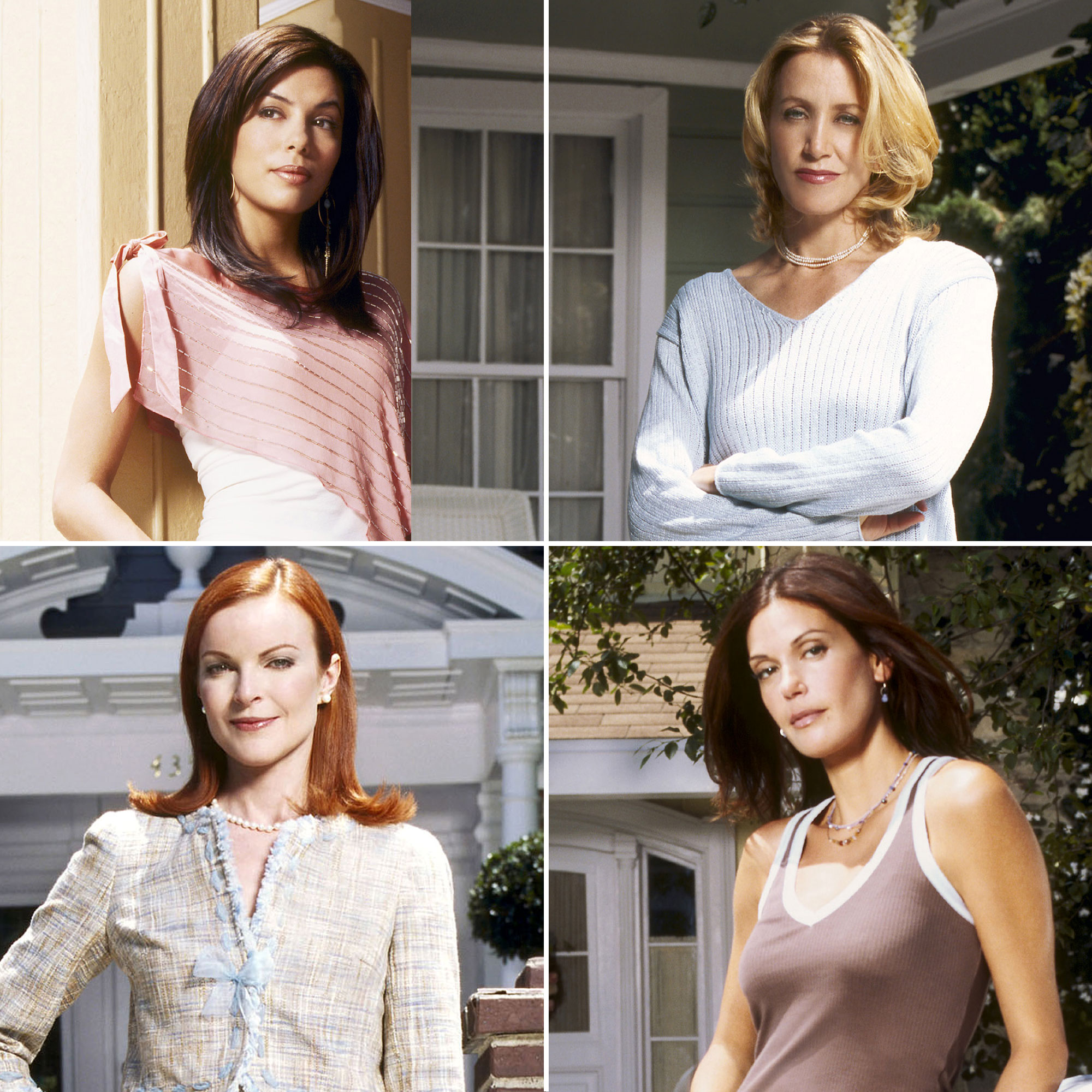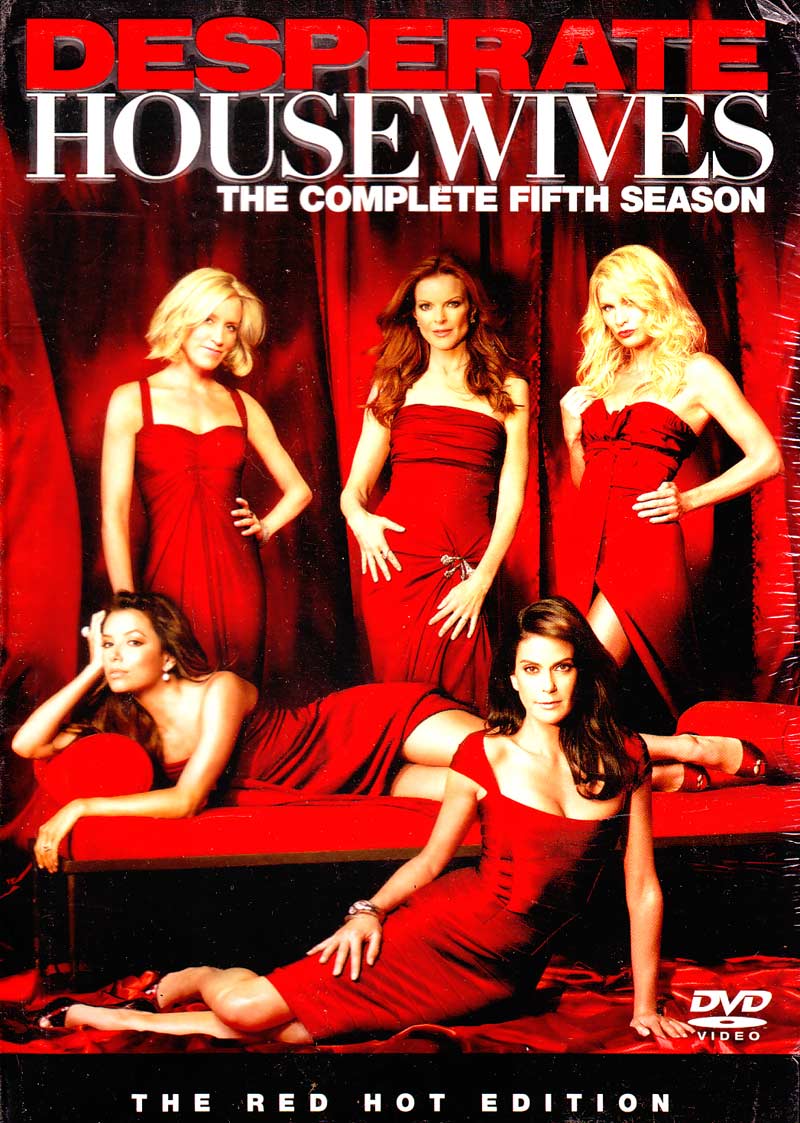So, you’ve probably heard of Desperate Housewives, right? It’s not just another TV show—it’s a cultural phenomenon that took the world by storm. From its premiere in 2004 to its finale in 2012, this series became a household name and left an indelible mark on pop culture. But what exactly made it so iconic? Why did it resonate with millions of viewers worldwide? Let’s dive into the juicy details, shall we?
This isn’t just about a bunch of housewives gossiping over coffee and secrets. Desperate Housewives was groundbreaking in its storytelling, character development, and the way it tackled real-life issues. It gave us complex, flawed, and relatable characters who felt like family. And yeah, there were plenty of scandals, mysteries, and drama, but it was so much more than that.
If you’re here, chances are you’re either a fan of the show or curious about why it became such a massive hit. Stick around, because we’re about to break it down for you—episode by episode, secret by secret, and scandal by scandal. Trust me, you won’t want to miss this ride.
Table of Contents
- Biography of Desperate Housewives
- The Creation of the Show
- Meet the Main Characters
- Season-by-Season Breakdown
- Key Themes Explored
- Cultural Impact and Legacy
- Criticism and Controversies
- Fan Reactions and Community
- Behind the Scenes
- Why Desperate Housewives Mattered
Biography of Desperate Housewives
Key Facts About the Show
Before we dive into the nitty-gritty, let’s get some basic facts straight. Desperate Housewives premiered on ABC on October 3, 2004, and ran for eight seasons, wrapping up on May 13, 2012. Created by Marc Cherry, the show was set in the fictional suburb of Wisteria Lane and followed the lives of five housewives: Susan Mayer, Lynette Scavo, Bree Van de Kamp, Gabrielle Solis, and Edie Britt.
Here’s a quick rundown of the show’s stats:
- Number of Seasons: 8
- Total Episodes: 171
- Average Viewers per Episode: Over 20 million during its peak
- Emmy Nominations: 34
- Golden Globe Wins: 5
Biodata of Key Characters
| Name | Played By | Occupation | Signature Trait |
|---|---|---|---|
| Susan Mayer | Terri Hatcher | Real Estate Agent | Clumsy but kind-hearted |
| Lynette Scavo | Felicity Huffman | Stay-at-Home Mom | Overwhelmed but fiercely loyal |
| Bree Van de Kamp | Marcia Cross | Chef turned housewife | Perfectionist with a dark side |
| Gabrielle Solis | Eva Longoria | Ex-model and socialite | Sexy and confident |
| Edie Britt | Nicole Ari Parker | Interior Designer | Wild and unpredictable |
The Creation of the Show
Desperate Housewives wasn’t just a random idea that popped into Marc Cherry’s head. It was inspired by his own experiences growing up in a suburban neighborhood where everyone seemed to have secrets. Cherry wanted to create a show that explored the darker side of suburban life, where the perfect facades hid messy realities.
What set Desperate Housewives apart from other shows at the time was its unique narrative structure. Each episode began with a voiceover by Mary Alice Young, the mysterious narrator who had died in the pilot episode. Her witty and often sarcastic commentary added a layer of depth to the storytelling, making the audience feel like they were in on the secrets too.
Meet the Main Characters
Susan Mayer: The Heart of Wisteria Lane
Susan Mayer was the heart and soul of the show. Played by Terri Hatcher, Susan was the clumsy yet lovable single mom who always seemed to find herself in sticky situations. Despite her flaws, she had a big heart and was always there for her friends when they needed her most.
Lynette Scavo: The Overwhelmed Mom
Felicity Huffman’s portrayal of Lynette Scavo was a masterclass in acting. Lynette was the quintessential soccer mom juggling a high-powered career with raising five kids. Her struggles with balancing work and family life resonated with many viewers, making her one of the most relatable characters.
Bree Van de Kamp: The Perfectionist
Marcia Cross’s Bree Van de Kamp was the epitome of perfectionism. She was the type of person who ironed her underwear and had a closet organized to military precision. But beneath her polished exterior lay a woman with deep insecurities and a dark past.
Gabrielle Solis: The Glamorous Housewife
Eva Longoria’s Gabrielle Solis was the sex symbol of Wisteria Lane. She was a former model who married for money and status, but her character evolved over the seasons to reveal a more vulnerable side. Gabrielle’s journey from superficial socialite to a woman finding her own voice was one of the show’s most compelling arcs.
Edie Britt: The Wild Card
Nicole Ari Parker’s Edie Britt was the wildcard of the group. She was the new girl in town who shook things up with her bold personality and scandalous behavior. Edie’s presence added a much-needed dose of chaos and unpredictability to the show.
Season-by-Season Breakdown
Each season of Desperate Housewives brought its own set of drama, mysteries, and twists. Here’s a quick overview:
- Season 1: The pilot introduces the main characters and sets the stage for the series with the mysterious death of Mary Alice Young.
- Season 2: The focus shifts to Susan’s pregnancy and the return of Carlos Solis, Gabrielle’s ex-husband.
- Season 3: A murder investigation throws the neighborhood into chaos, while Bree deals with her husband’s infidelity.
- Season 4: Lynette’s marriage is tested when her husband Tom has an affair, and Susan faces a custody battle.
- Season 5: The arrival of Katherine Mayfair adds a new layer of drama, while Bree struggles with addiction.
- Season 6: The show takes a darker turn with the introduction of the “Murder House” storyline.
- Season 7: The ladies face new challenges as their children grow up and move out.
- Season 8: The final season wraps up loose ends and gives each character a fitting conclusion.
Key Themes Explored
Desperate Housewives tackled a wide range of themes, from marriage and motherhood to infidelity and addiction. It wasn’t afraid to address controversial topics like domestic violence, mental health, and LGBTQ+ issues. The show’s willingness to explore these themes made it more than just entertainment—it was a reflection of real-life struggles.
Cultural Impact and Legacy
Desperate Housewives was more than just a TV show—it was a cultural phenomenon. It spawned a merchandise line, inspired countless parodies, and even influenced fashion trends. The show’s impact can still be felt today, as it paved the way for other female-driven series like Big Little Lies and The Handmaid’s Tale.
Criticism and Controversies
Of course, no show is without its critics. Some viewers felt that Desperate Housewives relied too heavily on stereotypes, particularly when it came to race and gender. Others argued that the show’s reliance on over-the-top drama sometimes overshadowed its more meaningful storylines. Despite these criticisms, the show remains beloved by millions of fans worldwide.
Fan Reactions and Community
The fanbase of Desperate Housewives is as passionate as ever. Online forums, social media groups, and fan sites continue to thrive, with fans discussing their favorite episodes, characters, and moments. The show’s enduring popularity is a testament to its ability to connect with audiences on a personal level.
Behind the Scenes
Did you know that Terri Hatcher almost didn’t take the role of Susan Mayer? Or that Eva Longoria’s character was originally supposed to be a minor one? The behind-the-scenes stories of Desperate Housewives are as fascinating as the show itself. From casting decisions to script changes, there’s always something new to discover.
Why Desperate Housewives Mattered
At its core, Desperate Housewives was about friendship, family, and the strength of women. It showed us that even in the darkest times, we can find hope, laughter, and love. It reminded us that no matter how perfect someone’s life may seem on the outside, we all have our own battles to fight.
So, whether you’re a long-time fan or just discovering the show for the first time, Desperate Housewives has something to offer everyone. It’s a reminder that life is messy, complicated, and beautiful—all at the same time.
Conclusion
Desperate Housewives wasn’t just a show—it was a cultural touchstone that defined a generation. From its unforgettable characters to its groundbreaking storytelling, it left an indelible mark on television history. As we look back on its legacy, we’re reminded of the power of storytelling to connect us, challenge us, and inspire us.
So, what do you think? Did we miss anything? Let us know in the comments below, and don’t forget to share this article with your fellow fans. Together, let’s keep the legacy of Desperate Housewives alive for generations to come.


